GFF Country Leadership Program for Health System Change
About the Program
Country leadership lies at the core of the GFF’s collaborative model and is crucial to driving transformational change. Leaders from across the GFF’s 36 countries who have been championing successful efforts to improve the health of women, children and adolescents have expressed a need to further enhance leadership impact. As part of its new strategy, the GFF’s Country Leadership Program will enable leaders, to learn from one another and equip them with the skills and support to drive systemic change across health systems.
Program Goals
- Enhance country leadership impact in response to systemic challenges, in an effective, sustainable and transformative manner.
- Convene and offer state-of-the-art knowledge and specialized know-how in areas such as, integrated governance, systems change and evidence informed policy.
- Provide a space for country top-leaders in the health arena to meet with peers from other countries and collaborate to find innovative responses to specific leadership challenges.
- Create a vibrant network of program alumni inspired by the country-driven, results-oriented GFF approach.
Stakeholders
The program will focus on national and subnational leaders including civil society and youth leaders. It will initially start with smaller groups per country, aiming to reach around 150 leaders by 2023.
Program Characteristics
-
Enabling Conditions for Transformative Leadership
To address complex challenges within adaptive systems. -
Tackling Country Specific Challenges
Designed based on real cases described by participants. -
Tailored Inputs by Experts
In partnership with a variety of specialized institutions and experts. -
Deep -Competence Oriented
Developing knowledge, skills and attitudes in an integrated manner. -
Integrated Action-Learning
Combined set of features including coaching, webinars and technical workshops, real-context team assignments, communities of practice and tailored personal development plans. -
Source for Research
Seeks to set-up a dynamic and influential alumni network, paired with research.
Key Topics
- Transformative Leadership with Peter Merry
The complexity and speed of change of our world requires new forms of individual and collective leadership. The old ways of trying to predict the future and control our way towards it are ill-suited to our current reality. We need to develop new qualities and competencies as leaders, build resilient cultures, and create adaptive structures and processes that allow us to dynamically steer our way forward. This module will share some of the personal leadership qualities needed and show how other modules will be contributing to building transformative leadership in our communities and organizations.
- Systems Thinking with Laura and Derek Cabrera
This module serves as an introduction to systems thinking methods and technical tools that are foundational to answering three essential questions: (1) Why does systems thinking exist (i.e., its promise and popularity)? (2) What is systems thinking? (3) How do we do systems thinking? We also explore two subsequent questions: (4) How do we apply systems thinking to everyday and wicked problems? and (5) How do we apply systems thinking to the social and policy challenges we face? At its core, systems thinking attempts to better align how we think things work with how the real world actually works. The real world works in systems—complex networks of many interacting variables. Often nonlinear, complex, and unpredictable, real-world systems seldom correspond with our desire for simplistic, hierarchical, and linear explanations. Systems thinking is the field of study that attempts to better understand how to think better about real-world systems, and the complex problems we face.
- Integrated Governance with Filipe Teles
Understanding the multiple aspects of governance and their particular challenges is often seen as one of the most difficult tasks committed to governments and their main actors. Governing does not allow having time to think, analyze, prepare, discuss and design. It is often about quick overviews and trust in available information and fast decision making. However, contemporary societal challenges require adequate tools from governments and demand leaders to be equipped with new arrays of competencies. These are particularly demanding regarding, precisely, how the broader governance context is understood and dealt with. In this module a framework to grasp the wider picture of governance, including its different aspects, and the ways in which it can be dealt with in an integrated manner will be suggested. Within a context where contemporary policy challenges require multi-level, multi-agent and multi-sectoral approached, discussing the advantages and problems of an integrated perspective on governance, its usefulness and intrinsic challenges will be at the core of the module.
- Evidence-based and Results-driven Policy with Peter Hansen
Leaders need to make decisions in real time based on the best available information. Yet data and information available to decision-makers are usually anything but real time. Data that are generated and analyzed are often misaligned with the information needs of key decision-makers and the timeframes whereby they need to make real world decisions. This not only operates as a constraint on specific decisions that need to be made – whether on policy and strategy, financing, service delivery, community engagement and responsiveness, or other matters – but hinders the overall ability of country leaders to deliver on the full potential of their stewardship of the health sector. Better aligning the feedback loops whereby data are generated, analyzed and used with country-led processes through which key decisions are made can help unlock this potential, and significantly enhance individual leadership and how it is applied to strengthen stewardship for improved health of populations. In this module, participants will explore a pragmatic framework and key principles for strengthening leadership through generation, analysis and use of data, and overcoming commonly experienced challenges in different settings. Participants will then explore how they can further learn from each other and apply new approaches in context of their own work to enhance individual leadership and how it is applied to strengthen overall stewardship of the sector.
- Change Leadership with Lisa Lahey
Most organizational transformations falter because they don’t address the mindset changes necessary to carry out new ways of working. Through a highly structured, research-based method, this module invites participants to uncover the underlying, and otherwise invisible, individual barriers (limiting assumptions and competing commitments) that actively, automatically and powerfully work against desired transformational change. Participants will be introduced to a reliable process for addressing and overcoming these barriers at their core.
Features
- Thematic Webinars: These webinar series share key approaches and concepts on the topics relevant to maximize your leadership impact in complex and adaptive contexts. Reputed experts from selected institutions will provide inputs tailored to cohort needs, that could then be applied in addressing your country team’s identified health system challenge.
- Online Learning Activities and Curated Resources: Online learning activities include discussion forums, collaborative pads, polls, reflection exercises, etc. These exercises will be presented throughout each module to help you reflect on the most important concepts in each module. Also, curated content will be shared through each module to complement it and for you to deepen each subject.
- Country Team Meetings: After each webinar, you will participate along with your country team in a guided reflection and discussion about the concepts presented to explore what implications this might bring to your leadership practice when addressing your Country’s Health System Challenge.
- Country Leadership Actions: These series of practical assignments focus on ideating and implementing concrete actions to address the country challenges identified. You will work with your country team on specific leadership responses, guided by thematic experts. These assignments nourish the Country Health System Challenge and are crucial for (1) addressing the challenge itself and (2) develop new leadership competences in an experiential way.
- Country Health System Challenge (CHSC): This is in essence your own case-study built on the go by you and your team. It is a living, dynamic document, accompanying the work of the team throughout the program – and beyond it. It states the context in which you operate as leaders and defines the complex challenge you’re determined to respond to towards health system transformation.
- Case Studies: Tailor-made case studies will be used through the program, containing several pointers to existing activities in the countries, good practices in-country or elsewhere, connections to GFF work and hints towards institutionalization of a transformative leadership agenda. The case studies will be introduced at specific points of the program. These case-studies are being developed exclusively for this program, based on the specific needs and leading contexts of participants.
- Skills Workshops: As the program unfolds, optional thematic workshops will be scheduled on a content demand basis to complement each module. Participation is not mandatory, but we highly recommended that you to join to learn complementary leadership skills, approaches, concepts and actionable tools that will enhance your leadership impact and help address your Country Health System Challenge.
- Hogan Leadership Assessment: Before the program starts, you will be able to complete the Hogan personality assessments and gain insights about key strengths, areas for development, values, and vulnerabilities that have the potential to hinder your leadership effectiveness. In addition, you will have the opportunity to turn these insights into action by creating a Personal Leadership Enhancement Plan and working with a coaching expert to drive both personal and organizational success.
- Personal Leadership Enhancement Plan (PLEP): The PLEP is a personal and confidential document that will accompany you throughout the entire program to record your personal leadership enhancement. Through a series of questions and guidelines, you will record your analyses, your reflections, as well as good practices collected throughout the program activities (coaching, webinars, skills workshops, country team meetings, etc.) as well as insights you will gain while practicing new competences. The PLEP can be used during the coaching or mentoring sessions, if needed.
- Coaching and Mentoring Sessions: Throughout the program, you will have the possibility to avail of 6 hours of personalized and individual coaching sessions to support you in your leadership journey. They are optional, yet highly recommended following the Hogan Leadership Assessment debrief. You will have the choice between 10 different experienced coaches to engage in these sessions.
- Fem League: As part of the CLP, the Fem League will be offering their Greater Leaders program, where female leaders will be able to attend up to twelve group sessions as well as have access to one-on-one advisory sessions if desired. During the sessions you will be able to share your stories of individual and collective transformation in your countries as part of a community that can sustain the transformation and support you on your journey as a leader.
- Impact Circles: Impact Circles are groups of up to 5 people that CLP Participants select to support them in the implementation of any changes in their organization they want to make during and after the program. The Impact Circle participants get access to recordings of the webinars, the live workshops and learning resources including online courses.
- Communities of Practice: The Communities of Practice (CoPs) are groups of people who work in the same area e.g., health ministry, finance ministry, CSO, private sector, funders. You are given the opportunity to meet with colleagues who work in the same area as you in a CoP during the program. During the meetings you will be able to share cases, questions and solutions with each other to improve the impact you can make on systemic change in the health sector. The CoPs will grow as the CLP is run in more countries and will continue to be available to you after the program.
What the program offers:
- You will learn while addressing real country leadership challenges
- Access tailored and actionable leadership tools and skills to address country- specific challenges
- Learn from other countries’ experiences to harness powerful tacit knowledge
- Access individual coaching and in-country, tailored team support
What makes this program unique?
- Brings together a diversity of country stakeholders for effective systemic change
- Strengthens enabling conditions for greater leadership impact
- Provides tailored empowering tools for female leaders
- It follows a flexible virtual approach that adapts to meet the time demands of highly busy leaders
Learn from the best
Peter Merry – Transformative Leadership
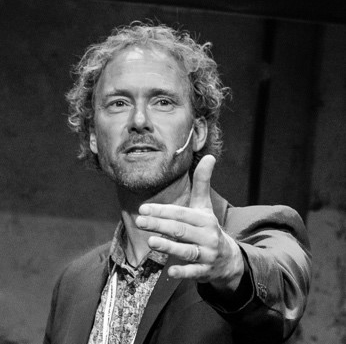 Dr. Peter Merry is co-founding Chief Innovation Officer at Ubiquity University. He has worked in and across different sectors. As well as co-founding and leading various organizations, his experience includes facilitating integral change processes in multinational corporations, and government ministries, and in multistakeholder initiatives with global stakeholders. He has also spent many years in the not-for-profit sector. He is a recognized expert in the field of futureproof learning, evolutionary systems dynamics and integral leadership.
Dr. Peter Merry is co-founding Chief Innovation Officer at Ubiquity University. He has worked in and across different sectors. As well as co-founding and leading various organizations, his experience includes facilitating integral change processes in multinational corporations, and government ministries, and in multistakeholder initiatives with global stakeholders. He has also spent many years in the not-for-profit sector. He is a recognized expert in the field of futureproof learning, evolutionary systems dynamics and integral leadership.

Laura Cabrera – Systems Thinking
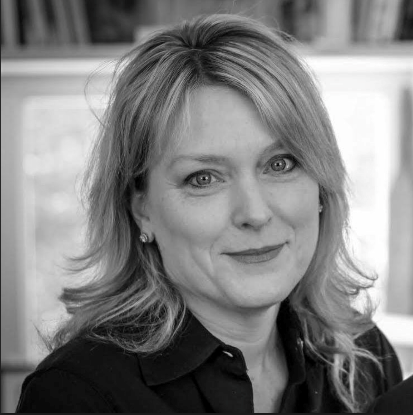 Laura Cabrera (B.S., M.P.A, & PhD, Cornell) teaches Systems Thinking, Modeling, and Leadership at Cornell University. She is also Co-Founder and Senior Researcher at the Cabrera Research Lab and Co-Founder of Plectica (now Frameable). Cabrera applies her expertise in research methods and translational research to increase public understanding, practical application, and dissemination of sophisticated systems science and systems thinking models. In 2018, she received an NSF Small Business Innovation Research (SBIR) Grant for her work about innovative ways to map and assess understanding via cognitive mapping. She has authored five books: Systems Thinking Made Simple: New Hope for Solving Wicked Problems and Thinking at Every Desk: Four Simple Skills to Transform Your Classroom (Norton), Flock Not Clock: Design, Align, and Lead to Achieve Your Vision. She is currently co-editor of the Routledge Handbook of Systems Thinking, and a member of the USMA’s Systems Engineering Advisory Board.
Laura Cabrera (B.S., M.P.A, & PhD, Cornell) teaches Systems Thinking, Modeling, and Leadership at Cornell University. She is also Co-Founder and Senior Researcher at the Cabrera Research Lab and Co-Founder of Plectica (now Frameable). Cabrera applies her expertise in research methods and translational research to increase public understanding, practical application, and dissemination of sophisticated systems science and systems thinking models. In 2018, she received an NSF Small Business Innovation Research (SBIR) Grant for her work about innovative ways to map and assess understanding via cognitive mapping. She has authored five books: Systems Thinking Made Simple: New Hope for Solving Wicked Problems and Thinking at Every Desk: Four Simple Skills to Transform Your Classroom (Norton), Flock Not Clock: Design, Align, and Lead to Achieve Your Vision. She is currently co-editor of the Routledge Handbook of Systems Thinking, and a member of the USMA’s Systems Engineering Advisory Board.

Derek Cabrera – System Thinking
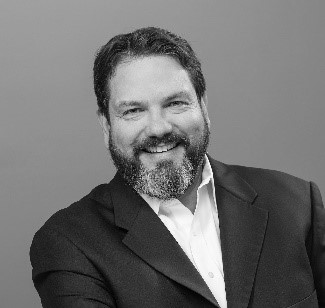 Derek Cabrera (PhD, Cornell), an internationally known systems scientist, is faculty at Cornell University who teaches systems thinking, leadership, and mapping. He is senior scientist at Cabrera Research Lab, Co-Founder and Chief Science Officer of Plectica, and inventor of the Plectica systems mapping software. He is author of eight books: Systems Thinking Made Simple: New Hope for Solving Wicked Problems, Thinking at Every Desk, and Flock Not Clock: Design, Align, and Lead to Achieve Your Vision. Cabrera is co-editor of the Routledge Handbook of Systems Thinking. He was Research Fellow at the Santa Fe Institute (SFI) for the Study of Complex Systems and NSF IGERT Fellow in Nonlinear Systems in the Department of Theoretical and Applied Mechanics at Cornell University. He serves on USMA’s Systems Engineering Advisory Board. Cabrera developed and patented a suite of systems thinking tools for use in academia, business, and beyond.
Derek Cabrera (PhD, Cornell), an internationally known systems scientist, is faculty at Cornell University who teaches systems thinking, leadership, and mapping. He is senior scientist at Cabrera Research Lab, Co-Founder and Chief Science Officer of Plectica, and inventor of the Plectica systems mapping software. He is author of eight books: Systems Thinking Made Simple: New Hope for Solving Wicked Problems, Thinking at Every Desk, and Flock Not Clock: Design, Align, and Lead to Achieve Your Vision. Cabrera is co-editor of the Routledge Handbook of Systems Thinking. He was Research Fellow at the Santa Fe Institute (SFI) for the Study of Complex Systems and NSF IGERT Fellow in Nonlinear Systems in the Department of Theoretical and Applied Mechanics at Cornell University. He serves on USMA’s Systems Engineering Advisory Board. Cabrera developed and patented a suite of systems thinking tools for use in academia, business, and beyond.

Filipe Teles – Integrated Governance
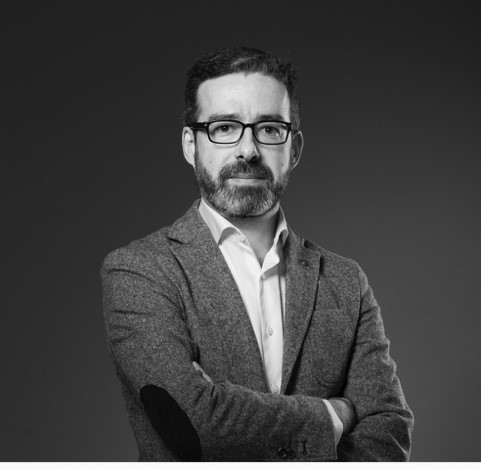 Filipe Teles has worked with and across different sectors. As an expert/consultant he has worked with several European institutions and agencies, as well as in other global contexts where he has acted as consultant and policy advisor in topics related to decentralization, local governance, inter-institutional collaboration and integrated governance. He is a political scientist in the University of Aveiro, Portugal, where he teaches courses in the fields of Public Policy and Governance, and currently acts as Pro-rector for Regional Development. He holds a PhD in Political Science and has developed research work on subnational governance, territorial reforms, and political leadership. Filipe Teles participates in several international projects and is the author and co-author of various books. In the context of his teaching and research activities he has lectured in several universities in different continents. He is the co-editor of the book series “Palgrave Studies in Sub-National Governance” and, currently, vice-president of the European Urban Research Association.
Filipe Teles has worked with and across different sectors. As an expert/consultant he has worked with several European institutions and agencies, as well as in other global contexts where he has acted as consultant and policy advisor in topics related to decentralization, local governance, inter-institutional collaboration and integrated governance. He is a political scientist in the University of Aveiro, Portugal, where he teaches courses in the fields of Public Policy and Governance, and currently acts as Pro-rector for Regional Development. He holds a PhD in Political Science and has developed research work on subnational governance, territorial reforms, and political leadership. Filipe Teles participates in several international projects and is the author and co-author of various books. In the context of his teaching and research activities he has lectured in several universities in different continents. He is the co-editor of the book series “Palgrave Studies in Sub-National Governance” and, currently, vice-president of the European Urban Research Association.
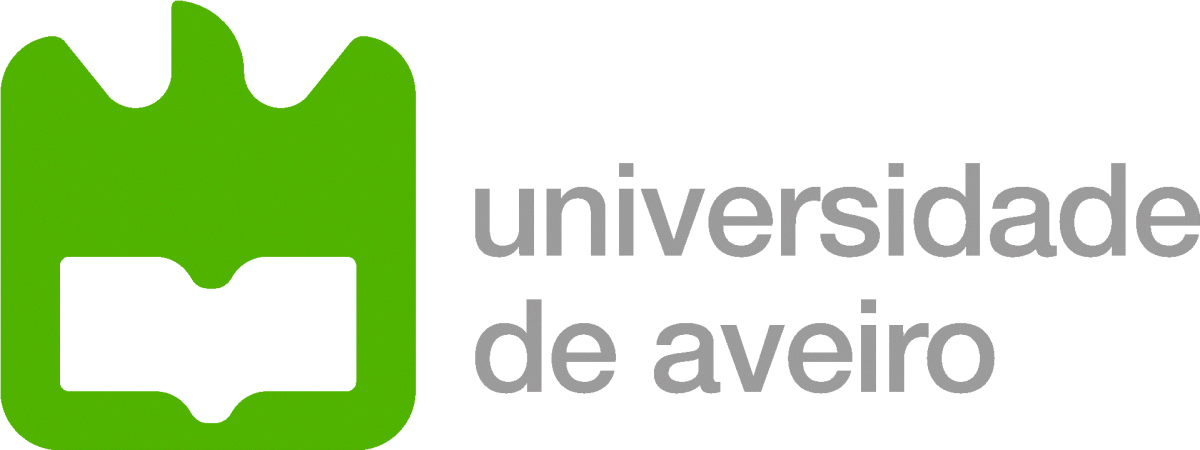
Peter Hansen – Evidence-based and Results-driven Policy
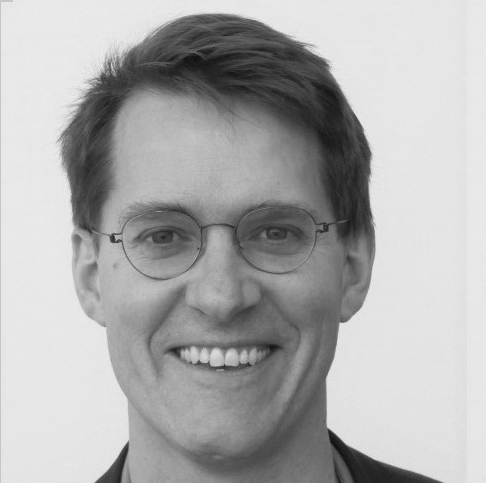 Peter Hansen leads GFF’s Results workstream. Previously, Peter co-led Results for Development’s health portfolio and served as director of the Health Systems Strengthening Accelerator. He also worked at the Global Fund to Fight AIDS, Tuberculosis and Malaria, where he led a department responsible for accelerating the introduction and scale up of innovations and ensuring scientific and technical quality of investments totaling nearly $4 billion per year in over 100 countries. He also worked at Gavi, the Vaccine Alliance, where he led the monitoring and evaluation function and investments in strengthening country data systems and capacities.
Peter Hansen leads GFF’s Results workstream. Previously, Peter co-led Results for Development’s health portfolio and served as director of the Health Systems Strengthening Accelerator. He also worked at the Global Fund to Fight AIDS, Tuberculosis and Malaria, where he led a department responsible for accelerating the introduction and scale up of innovations and ensuring scientific and technical quality of investments totaling nearly $4 billion per year in over 100 countries. He also worked at Gavi, the Vaccine Alliance, where he led the monitoring and evaluation function and investments in strengthening country data systems and capacities.
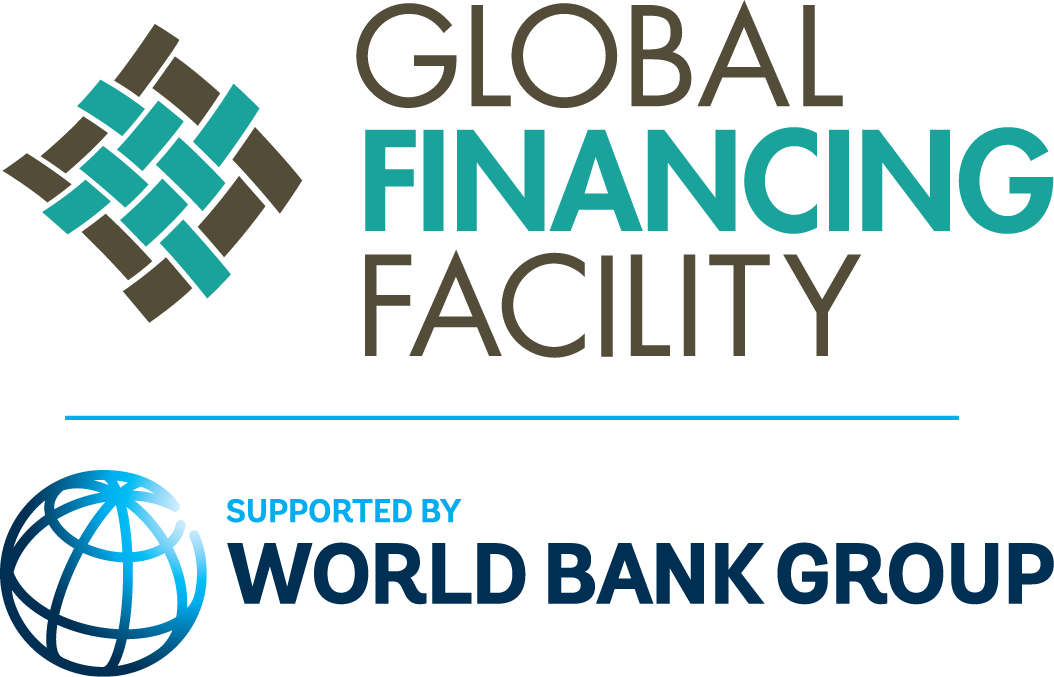
Lisa Lahey – Change Leadership
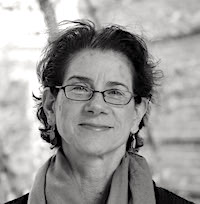 Lisa is Founder of Minds At Work, a coaching and consulting firm serving businesses and institutions around the world and is on the faculty of Harvard University where leads the Personal Mastery program in the Doctorate Program for Educational Leaders for aspiring public-school superintendents and other leaders. Lahey and collaborator Robert Kegan are credited with discovering the “immunity to change,” a dynamic which impedes personal and organizational transformation. Her work helps people to close the gap between their good intentions and behaviors. This work is used worldwide by executives, senior teams and individuals in business, governmental, and educational organizations.
Lisa is Founder of Minds At Work, a coaching and consulting firm serving businesses and institutions around the world and is on the faculty of Harvard University where leads the Personal Mastery program in the Doctorate Program for Educational Leaders for aspiring public-school superintendents and other leaders. Lahey and collaborator Robert Kegan are credited with discovering the “immunity to change,” a dynamic which impedes personal and organizational transformation. Her work helps people to close the gap between their good intentions and behaviors. This work is used worldwide by executives, senior teams and individuals in business, governmental, and educational organizations.

Scott Gregory – Hogan
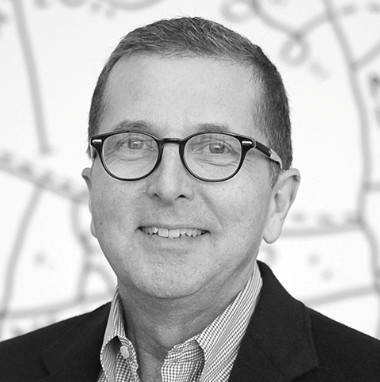 As Hogan’s CEO, Scott brings years of expertise in executive selection, development, and succession to his leadership and vision for all aspects of Hogan’s domestic and global business. Scott was one of the first employees of Hogan Assessment Systems and completed his Ph.D. training under Bob and Joyce Hogan, the firm’s founders. His work on the firm’s foundational assessments led to extensive experience in several global consulting firms and a 12-year stint as vice president of talent management and OD for Pentair, a global manufacturing business, where he was responsible for global management and executive recruiting, selection, development, and succession planning. He returned to Hogan in 2013 to continue to help clients leverage the science of personality. Scott is a frequent speaker on personality in the workplace, and his thought leadership has been featured in the Wall Street Journal, Harvard Business Review, Forbes, Fortune, and other global publications. He has coached CEOs and other executives, consulted with half of the Fortune 100, and worked extensively with personality assessment in North America, South America, Australia, Asia, and Europe.
As Hogan’s CEO, Scott brings years of expertise in executive selection, development, and succession to his leadership and vision for all aspects of Hogan’s domestic and global business. Scott was one of the first employees of Hogan Assessment Systems and completed his Ph.D. training under Bob and Joyce Hogan, the firm’s founders. His work on the firm’s foundational assessments led to extensive experience in several global consulting firms and a 12-year stint as vice president of talent management and OD for Pentair, a global manufacturing business, where he was responsible for global management and executive recruiting, selection, development, and succession planning. He returned to Hogan in 2013 to continue to help clients leverage the science of personality. Scott is a frequent speaker on personality in the workplace, and his thought leadership has been featured in the Wall Street Journal, Harvard Business Review, Forbes, Fortune, and other global publications. He has coached CEOs and other executives, consulted with half of the Fortune 100, and worked extensively with personality assessment in North America, South America, Australia, Asia, and Europe.

Yomi Abiola – The FemLeague
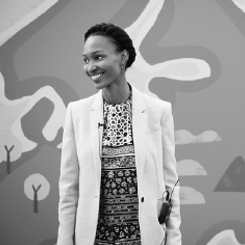 Yomi is driven by her mission: the advancement of women as the key to human growth. As a media entrepreneur, founder of The Fem League and an international voice for cultural curiosity and inclusive leadership, Yomi has advised and presented at Harvard, Yale, Milken Institute, MIT, the United Nations, The Wilson Center, and TED. She is a graduate of Columbia School of Journalism, Sciences Politiques Paris, and Harvard. She has served as an associate to the UNESCO Chair for Human Rights, an MIT Legatum Catalyst, and as an editor at Vogue Italia. She currently serves as the Scandinavian Alumni Ambassador for The Harvard Kennedy School.
Yomi is driven by her mission: the advancement of women as the key to human growth. As a media entrepreneur, founder of The Fem League and an international voice for cultural curiosity and inclusive leadership, Yomi has advised and presented at Harvard, Yale, Milken Institute, MIT, the United Nations, The Wilson Center, and TED. She is a graduate of Columbia School of Journalism, Sciences Politiques Paris, and Harvard. She has served as an associate to the UNESCO Chair for Human Rights, an MIT Legatum Catalyst, and as an editor at Vogue Italia. She currently serves as the Scandinavian Alumni Ambassador for The Harvard Kennedy School.

